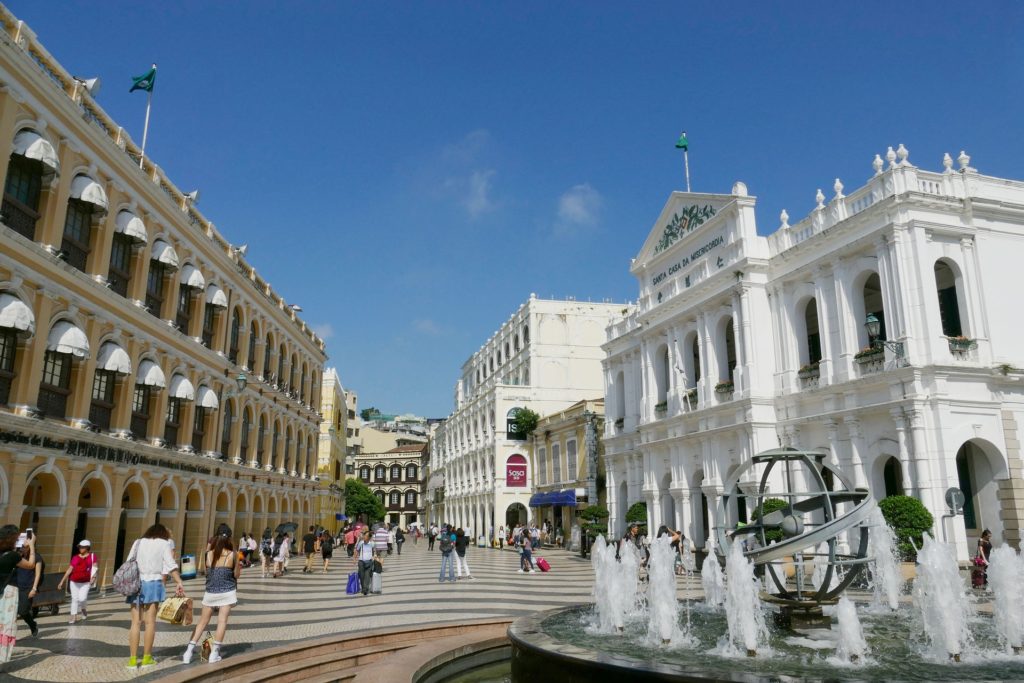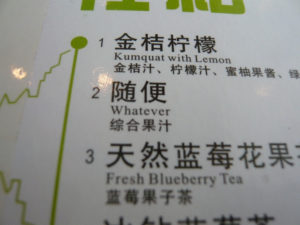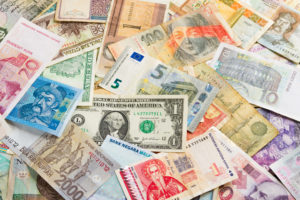Hello Macau, goodbye Hong Kong. This has been the main theme surrounding Chairman Xi Jinping’s visit to Macau to mark the 20th anniversary of the former Portuguese colony’s transfer of sovereignty to China. Besides sending a not-so-subtle message to “bad student” Hong Kong, Xi is “expected to announce new policies aimed at diversifying the casino hub’s gaming-dependent economy and developing it into an international financial center”.
This is interesting. For some time now, we’ve heard of efforts to turn Shanghai or Shenzhen into the “new Hong Kong” (underscoring that the central government’s concerns about Hong Kong far predate the current unrest and even that of 2014), but the buzzwords for Macau have remained “leisure and tourism”, with some talk of serving as a bridge for business between China and the Portuguese-speaking world and a niche interest in traditional Chinese medicine. But an international finance center? Given what happened last time anyone outside the city heard of a Macanese bank, one would have thought they would want to stick with the “Asia’s Las Vegas” thing, which they do very well.
The shift towards Macau suggests the Chinese leadership is coming to terms with a home truth: International businesses have historically liked Hong Kong because it is different from the rest of China. The fact that the courts in Hong Kong feel a lot like English courts, and that websites can be freely accessed, and that companies can be incorporated without dealing with excessive red tape, and that citizens of most countries in the world can enter without visas, and that SIM cards can be bought without needing to show ID, and that foreign residents do not need to go register with the police when they move to a new apartment, and that churches are not controlled by government authorities, all matter.
Having a stock market and a spiffy skyline do not automatically make a city an international financial center. There must be reasonably free flows of capital, information, goods, and people, as well as legal protections that make companies (especially foreign ones) comfortable about bringing in said capital, information, goods, and people. But there clearly is a gap between what the international business community requires and what the CCP is willing to allow in the Mainland.
Realizing that no Mainland city is ready to step into Hong Kong’s shoes, it makes sense to turn to Macau. The city enjoys the same autonomous framework that Hong Kong does, but with a population that has so far proven much more amenable to Beijing’s overtures. In fact, as opposed to Hong Kong’s, Macau’s Basic Law makes no promises about universal suffrage.
But is Macau up to the task of becoming an international center on par with Hong Kong and Singapore?
Macau faces significant challenges in this regard, some manageable, some probably not. For a start, the city would need to improve its physical infrastructure. Macau does not have much in the way of office space and it has little room to build more. The city could seek additional territory in Hengqin, an adjoining Mainland island, following the model employed to build the new University of Macau’s campus. That might be good enough for a company that wants a South China office, but it’s hard to envision a Fortune 500 company choosing Hengqin over Singapore as the site for its Asia-Pacific HQ.
Once the buildings are up, a massive influx of bankers, accountants, lawyers, and other professionals will be needed. “Hong Kong has almost 600 stockbrokerages and 164 licensed banks, including 70 of the world’s largest players such as HSBC, JPMorgan Chase, Morgan Stanley, Goldman Sachs. Macau, on the other hand, only has 30 lenders, most of which are arms of mainland Chinese banks”. Some Hong Kong-based expats might be reluctant to make the jump, but their numbers are dwindling anyway. And there should not be a problem retaining or attracting Mainland Chinese talent, increasingly the lifeblood of Hong Kong’s professional services sector. Experienced Hong Kong staff could be kept on board without requiring them to relocate, now that there is a bridge between the two cities. But again, this assumes that the company in question needs to stay in the Greater Bay Area (GBA) and/or close to China. If not, faced with the inevitable costs associated with relocation, many international companies will just go to Singapore.
Transport presents another challenge. Macau International Airport’s runway is large enough for 747s (and in fact serves as a reliever to Hong Kong International Airport (HKG), though not for A380s), but the terminal is small, and any expansion would require massive land reclamation (which, to be fair, is one of Macau’s fortes). In practice, Macau will need to continue relying on HKG. There are already ferries that operate from Macau to HKG, and passengers do not need to clear Hong Kong controls before transferring to a flight—but it’s hardly as convenient as taking a 24-minute train from central Hong Kong. The airport in Zhuhai (the neighboring city in the mainland) offers an alternative, but it’s still 30 miles away and is impractical as a gateway to Hong Kong (and the larger cities in the GBA, such as Shenzhen, which HKG serves as an alternate gateway), meaning that interest from international airlines would be limited. Did we mention that Singapore’s Changi Airport is a 20-minute taxi ride away from downtown?
Then there is Macau’s governance, which will need to be enhanced if it seriously aspires to become a global financial center. For instance, not only will a stock market need to be established, but Macau would need to form a regulator and pass securities legislation that inspires confidence in would-be investors. Myriad existing laws would need to be changed. To take but one example, the minimum share capital for a Macau private limited company is 25,000 patacas (~USD 3,115), whereas in Hong Kong there is no requirement at all. Even with legislation in place, Macau would lack the extensive jurisprudence (and lawyers and judges expert in it) that common-law jurisdictions like Hong Kong and Singapore can turn to, not only from their own courts, but also those of Commonwealth nations steeped in the same tradition.
Understandably, this uncertainty will rattle international business lawyers used to New York, London and, yes, Hong Kong. This frank recognition of differences that have a practical impact on businesses is not intended as wholesale criticism of the Macanese legal system or the Portuguese one that greatly influenced it. In fact, a system that resembles a continental Europe one would offer a reasonable starting point for building an international business center’s legal infrastructure, but even that is fraying:
The legal system is broadly based on Portugal’s. But influence from the Chinese mainland is squeezing it, experts said, in an accelerated version of the scenes unfolding in Hong Kong.
“We can feel it. If you look to the legislation that has been passed in recent years, we understand that there is a big influence from the first system (China) on the second system (Macau),” said Pedro Cortes, a lawyer in Macau.Jorge Neto Valente, head of the Macau’s Lawyers Association, said freezing out Portuguese judges violated the Basic Law and created a sort of patriotism test based on their feelings toward China.
And in the business community, many worry about increasing interference – an issue that could hurt the casino industry. Casino executives say they are closely watching what official policy will be as their licenses begin to expire in 2020.
These days, the only real remaining elements of Portuguese influence are colonial architecture and its distinctive cuisine.
Portuguese and Chinese are both official languages in Macau, but there are signs that Chinese is being prioritized in government.
There are no longer any Portuguese judges in Macau’s criminal court, and they account for around 10 percent of the city-state’s 49 jurists.
Courts have largely stopped providing Portuguese translations. During the trial of Sulu Sou, Macau’s youngest lawmaker, and Scott Chiang on charges of aggravated disobedience their lawyers, Jorge Menezes and Pedro Leal, were denied translation of a 66-page Chinese ruling.
The judge said Sou and Chiang “took the risk” of hiring Portuguese lawyers and should have considered language when making their decision.
Experts said the government was increasingly hiring only Chinese for jobs as lawyers, advisers and jurists.
Rita Assis Ferreira, a lawyer in Portugal and representative of PLMJ Law Firm in Macau, said this was part of a long-term government plan to promote Chinese policies after the handover.
Against this background, it’s hard to see how Macau’s legal system could smoothly develop into a world-class one. Again, if there is a choice, Singapore will be the clear winner.
Chairman Xi is smart to place his bets on Macau as China’s replacement for Hong Kong. Its autonomy—limited and in retreat as it is—will give it much more leeway than Shanghai or Shenzhen as it seeks to create an international business center. Foreign companies have and will continue to have reservations about Macau, but probably to a lesser degree than they do about Mainland cities. A better bet for Xi, however, would have been to avoid having to replace Hong Kong in the first place. Macau might get a boost at the expense of its naughty brother across the Pearl River estuary, but the real winner has been and will continue to be Singapore.

























